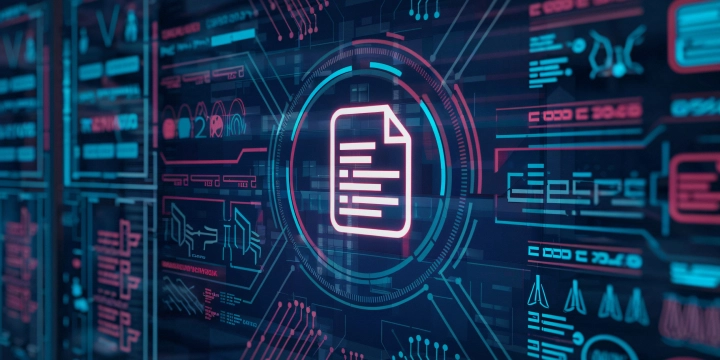In today’s rapidly evolving digital landscape, the need for robust (KYC) verification processes has become more critical than ever before. As businesses expand globally and online transactions surge, the importance of verifying the identity of customers cannot be overstated. This comprehensive guide delves into the world of KYC, the challenges associated with traditional manual processes, and the game-changing benefits of KYC automation, with a focus on how innovative solutions like DocVu.AI are transforming KYC verification.
What is KYC?
KYC, or Know Your Client, is a vital component of due diligence worldwide that financial institutions, businesses, and organizations undertake to verify the identity of their clients. It involves gathering and validating information about individuals or entities to confirm their authenticity and assess the associated risk. KYC processes aim to prevent financial fraud, money laundering, and other illegal activities, making them essential in maintaining regulatory compliance.
Why is KYC Important?
Example 1: Imagine a scenario where a bank does not conduct thorough KYC verification. An individual with malicious intent could open an account using a false identity, deposit ill-gotten funds, and engage in illegal activities like terrorism financing with ease. This not only threatens the bank’s reputation but also exposes it to legal consequences, possibly under the Patriot Act.
Example 2: For an online marketplace, effective KYC ensures that sellers are genuine and their products comply with legal standards. Without KYC, counterfeit or unsafe products could flood the platform, jeopardizing consumer trust and regulatory compliance.
Manual / Traditional KYC and its Challenges
While KYC is vital, traditional manual processes come with their fair share of challenges. Manual KYC requires individuals to review, validate, and cross-check documents to confirm the identity and assess the risk associated with potential or existing customers. It typically involves a series of steps, such as collecting documents in person or via mail, physically examining the authenticity of the documents, and manually entering relevant data into the system. Some disadvantages of the traditional process are as enumerated below.

Time-Consuming
Manual verification involves paperwork, face-to-face interactions, and a plethora of documents, making the process slow and cumbersome.

Risk of Human Errors
Humans are prone to errors, and manual data entry can lead to inaccuracies, compromising the integrity of the verification process.

High Costs
Traditional KYC processes incur significant costs related to document collection, storage, and personnel.

Data Security & Privacy
Handling sensitive customer data manually increases the risk of data breaches and privacy violations.
KYC Automation and its Benefits
In response to these challenges, KYC automation has emerged as a revolutionary solution. The shift toward digital KYC is accelerating, and here are some key benefits:
❖ Time-Saving:
KYC automation drastically reduces processing times, enabling businesses to onboard customers swiftly while remaining compliant. The automation of data collection, verification, and analysis streamlines the entire KYC process, eliminating unnecessary delays.
❖ Improved Readability:
Automated systems can extract and verify data from various document types, enhancing accuracy and readability. Optical Character Recognition (OCR) technology, combined with machine learning algorithms, can decipher handwritten text and extract information from images, making the process more comprehensive and error-free.
❖ Customer Satisfaction:
Customers appreciate quick and hassle-free onboarding experiences. With KYC automation, potential clients can complete the verification process online, reducing the need for physical visits to brick-and-mortar locations. This convenience leads to increased satisfaction and loyalty.
❖ Enhanced Compliance:
Automated KYC systems are designed to ensure strict compliance with regulatory requirements like the CCPA. They can adapt to evolving regulations and perform ongoing monitoring to detect any suspicious activity promptly. This reduces the risk of fines due to non-compliance and other legal issues.
❖ Scalability:
KYC automation allows businesses to scale their operations efficiently. Whether you’re a small startup or a large enterprise, automated systems can handle a growing volume of customers without significant increases in overhead costs.
❖ Cost Reduction:
Automating KYC processes leads to cost savings in various ways. It reduces the need for manual labor, eliminates paper-based documentation expenses, and minimizes errors that can result in costly penalties or customer disputes.
❖ Data Security & Privacy:
KYC automation platforms prioritize data security and privacy. They implement robust encryption methods, access controls, and audit trails to protect sensitive customer information. Compliance with data protection regulations like GDPR and CCPA is also easier to achieve with automated systems.
Use Cases of KYC Automation
❖ Digital Customer Onboarding
An online lender utilizes KYC automation to streamline the application process. Applicants can upload their documents digitally, and the system validates their identity within minutes. This not only accelerates the lending process but also enhances user experience.
❖ Financial Services
Financial institutions, including banks and investment firms, leverage KYC automation to verify the identities of clients and assess the associated risks. Automation helps them comply with stringent financial regulations, such as Anti-Money Laundering (AML) and Counter-Terrorism Financing (CTF) laws, while efficiently serving their customers.
❖ E-Commerce and Online Marketplaces
Online marketplaces, like Amazon and eBay, rely on KYC automation to verify the identities of sellers and prevent fraudulent activities. Sellers can submit their documents, and automated systems verify their authenticity, ensuring a safer and more trustworthy marketplace for buyers.
❖ Healthcare
In the healthcare industry, KYC automation is crucial for verifying patient identities and complying with Health Insurance Portability and Accountability Act (HIPAA) regulations. It ensures that only authorized personnel access sensitive patient data and medical records.
Automate your processes with DocVu.AI
DocVu.AI is at the forefront of KYC automation solutions. Our platform leverages cutting-edge technology such as Artificial Intelligence and Machine Learning to provide efficient and secure KYC verification services. With DocVu.AI, businesses can automate the collection and validation of customer data, ensuring compliance with regulations while reducing costs and processing times. Explore how DocVu.AI can revolutionize your KYC processes – visit our website for more information.
How DocVu.AI Works
DocVu.AI offers a comprehensive KYC automation solution that encompasses the following key components:
Unified Customer Data Management: | DocVu.AI utilizes AI to automatically identify, capture, classify, and record customer data from various document formats within minutes. Say goodbye to information silos and welcome a unified approach to customer data management. |
Template-less Document Processing: | Say farewell to efficiency bottlenecks. DocVu.AI’s template-less document processing extracts information swiftly, enhancing the quality of customer data management effortlessly. No more manual processing; let automation streamline your workflows. |
Data Security: | Prioritize data security with DocVu.AI. Adhere to the latest cybersecurity protocols to keep customer data protected and prevent misuse by hackers or malicious entities. You can be assured that your customers’ information is in safe hands. |
Verification: | Achieve a single point of contact for verifying customer IDs. DocVu.AI seamlessly collects and records customer data from documents such as driver’s licenses, birth records, social security cards, passports, and more. |
Fraud Detection & De-duplication: | Safeguard customer data with DocVu.AI robust fraud detection and de-duplication features. Protect your customers from digital fraud by avoiding duplication of data or documents, ensuring a secure onboarding process. |






